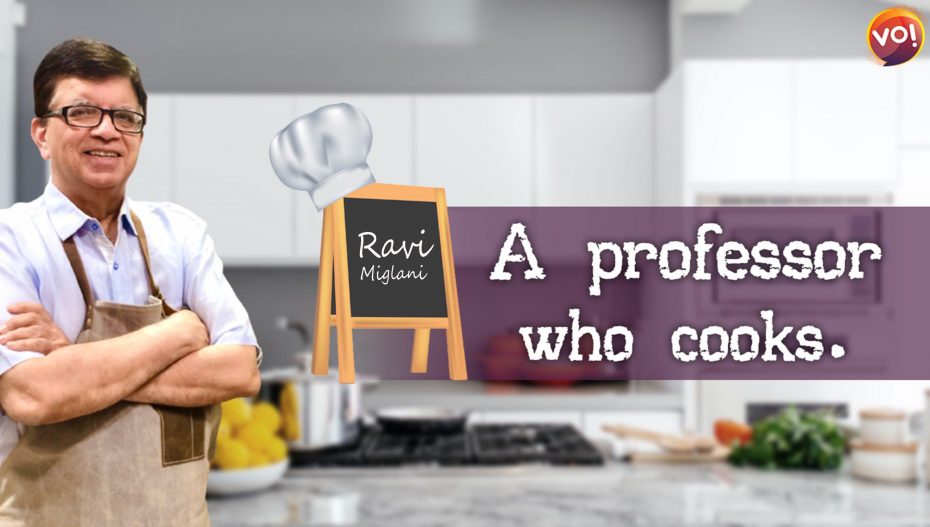Food is politics. Throughout human history, food has been used as a means to signal power and position in society. Food has been caught up in the identity of caste, class, religion, ethnicity, and nationality.
Sections of society always use food to differentiate themselves from other sections of society. The rich eat some food, the poor eat another. Brahmins eat some food and Dalits eat another. Hindus eat some food and Muslims eat another. These walls, all walls, are manmade. Nature abhors boundaries and division.
For example, for centuries, there was a huge diversity of grains consumed by all sections of society. There was wheat and rice, of course, but then there were dozens of humbler grains like millets – jowar, bajra, ragi, and so on. Since these millets were largely foraged, rather than grown on organised farms, they got classified as lower-caste food for the Dalits and tribal hunter gatherers. And they were looked down upon. This is a common trope in the othering of communities – based on their food, their caste, their language, their religion.
It is another matter that many of these millets are now making a comeback as so-called health foods, and becoming a fad fuelled by Instagram influencers. Millets were always health food. Millets, often eaten as whole grain, have more nutrition and fibre than the polished bran-stripped wheat and rice most of us eat. Just like haldi was everyone’s humble food ingredient, until it was reborn in a fancy new avatar as turmeric latte.
Even more vicious othering has been happening with meat. Human beings have always eaten meat. In recent times, and particularly in the past few years of saffron-hued polarising politics – the politics of us and them – meat has become ammunition in the politician’s arsenal. Myths are being propagated – meat is the food of the Muslims, meat is the food of the lower castes, meat is unclean, meat is unhygienic. The biggest myth of all is that India is a vegetarian country, and meat eating is alien to Indian culture. It is not. By most accounts, only around 30% of India’s population is vegetarian. In most states of India, vegetarians are a small minority in single-digit percentages. Meat is everywhere, often leading to memes calling for tandoori chicken to be named the national bird of India. In the ancient Vedic period, all Hindus ate meat.
Even in Gujarat, the so-called vegetarian capital of the country, only around 60% of people are vegetarian. The other 40% eat meat. This is based on asking people. In reality, many more thank 40% eat meat (many only outside the home) but do not admit in a survey that they do. The systematic stigmatisation of meat has pushed much of meat eating underground.
That brings me to the real reason why this week I have gone into this diatribe against phony food politics. The Municipal Corporation in Ahmedabad have decided to ban the sale of non-veg food on pushcarts (laaris) on public roads in the cities. That means no more omelette laaris, no more kebabs, no more fried chicken stalls. The reasons given are laughable – it is unhygienic to sell non-veg food on the street, it hurts sentiments, it causes traffic jams. Really? As if the thousands of maggipasta and paani puri laaris are all paragons of hygiene. And meat laaris cause traffic jams, while veg laaris do not? And traffic tends to coalesce around meat? If we want to tackle encroachment and clear the pavements for pedestrians – worthy goals – then do it for all veg and non-veg laaris. And find solutions for the laaris, before sweeping them off the streets. The laaris need to earn a living, the public need the cheap food that the laaris sell. Locking them up is not a solution. Not to mention the economic harm it will do to the thousands whose livelihood depends on egg and non-veg street food. Many anda wallas will go under.
The undertone that non-veg is the food of ‘them’ not ‘us’ and it will hurt our ‘sentiments’ to see it being openly sold – that smacks of xenophobia and intolerance, bordering on fascism. History has shown that once we start down the us versus them path, it never ends well.
Besides, pushing pushcarts out of sight doesn’t mean that people will stop selling or eating non-veg. The whole business will move underground and into dingy back alleys, which will actually make it unhygienic. We all know how well other bans have done in Gujarat – those products have also gone underground and are peddled by bootleggers and gangs. Bans never works.
India’s main claim to fame is its diversity – of cultures, of languages, of religions, of cuisines, of ethnicities. Trying to paint everyone with one saffron brush will destroy the essence of the country.
Bring back our egg & non-veg laaris. After a year of protests, the government has this week repealed the mighty farm laws. If protests can get a powerful government to change course on such a weighty issue, there is light at the end of the tunnel. Hashtag bring back our anda and chicken fry.
This Professor Cooks. And talks about food ideas, food science, food culture, food hacks, and food history. Watch this space for some food, and a lot more food for thought. Ravi Miglani is a home cook and consumer insights professional. Following a corporate career spanning eight countries and three decades, he is now a professor at Ahmedabad University (when he is not cooking).










